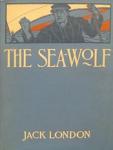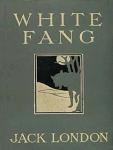The Sea-Wolf

Author:Jack London
Tag:The Sea-WolfJack London
The Sea-Wolf is a 1904 psychological adventure novel by American novelist Jack London about a literary critic, survivor of an ocean collision, who comes under the dominance of Wolf Larsen, the powerful and amoral sea captain who rescues him. Its first printing of forty thousand copies were immediately sold out before publication on the strength of London's previous The Call of the Wild. Ambrose Bierce wrote, "The great thing—and it is among the greatest of things—is that tremendous creation, Wolf Larsen... the hewing out and setting up of such a figure is enough for a man to do in one lifetime... The love element, with its absurd suppressions, and impossible proprieties, is awful."
Like The Call of the Wild, The Sea Wolf tells the story of a soft, domesticated protagonist, in this novel's case an intellectual man named Humphrey van Weyden, forced to become tough and self-reliant by exposure to cruelty and brutality. The story starts with him aboard a San Francisco ferry, called Martinez, which collides with another ship in the fog and sinks. He is set adrift in the Bay, eventually being picked up by Wolf Larsen. Larsen is the captain of a seal-hunting schooner, the Ghost. Brutal and cynical, yet also highly intelligent and intellectual (though highly biased in his opinions, as he was self-taught), he rules over his ship and terrorizes the crew with the aid of his exceptionally great physical strength. Van Weyden adequately describes him as an individualist, hedonist, and materialist. Larsen does not believe in the immortality of the soul, he finds no meaning in his life save for survival and pleasure and has come to despise all human life and deny its value. Being interested in someone capable of intellectual disputes, he somewhat takes care of Van Weyden, whom he calls 'Hump', while forcing him to become a cabin boy, do menial work, and learn to fight to protect himself from a brutal crew.
A key event in the story is an attempted mutiny against Wolf Larsen by several members of the crew. The organizers of the mutiny are Leach and Johnson. Johnson had previously been beaten severely by Larsen, and Leach had been punched earlier while being forced to become a boat-puller, motivating the two. The first attempt is by sending Larsen overboard; however, he manages to climb back onto the ship. Searching for his assailant, he ventures into the sleeping quarters, located beneath the main deck, the only exit being a ladder. Several, at least seven men, take part in the mutiny and attack Larsen. Larsen however, demonstrating his inhuman endurance, strength, and conviction, manages to fight his way through the crew, climb the ladder with several men hanging off him, and escape relatively unharmed. Van Weyden is promoted as mate, for the original mate had been murdered. Larsen later gets his vengeance by torturing his crew, and constantly claiming that he is going to murder Leach and Johnson at his earliest convenience, being the hunting season is done, as he can't afford to lose any crew. He later allows them to be lost to the sea when they attempt to flee on a hunting boat.
During this section, the Ghost picks up another set of castaways, including a poet named Maud Brewster. Miss Brewster and van Weyden had known each other previously—but only as writers. Both Wolf Larsen and van Weyden immediately feel attraction to her, due to her intelligence and "female delicacy". Van Weyden sees her as his first true love. He strives to protect her from the crew, the horrors of the sea, and Wolf Larsen. As this happens, Wolf Larsen meets his brother Death Larsen, a bitter opponent of his. Wolf kidnapped several of Death's crew and forced them into servitude to fill his own ranks, lost previously during a storm. During one of Wolf Larsen's intense headaches, which render him near immobile, van Weyden steals a boat and flees with Miss Brewster.
The two eventually land on an uninhabited island, heavily populated with seals. They hunt, build shelter and a fire, and survive for several days, using the strength they gained while on the Ghost. The Ghost eventually crashes on the island, with Wolf Larsen the only crew member. As a revenge, Death Larsen had tracked his brother, bribed his crew, destroyed his sails, and set Larsen adrift at sea. It is purely by chance that van Weyden and Miss Brewster meet Larsen again.
Van Weyden obtains all of the weapons including firearms left on the ship, but he cannot bear to murder Larsen, who does not threaten him. Van Weyden and Miss Brewster decide they can repair the ship, but Larsen, who intends to die on the island and take them with him, sabotages any repairs they make. After a headache, Larsen is rendered blind. He feigns paralysis and attempts to murder van Weyden when he draws within arm's reach but just then is hit with a stroke that leaves him blind and the right side of his body paralyzed. His condition only worsens; he loses usage of his remaining arm, leg, and voice. Miss Brewster and van Weyden, unable to bring themselves to leave him to rot, care for him. Despite this kindness, he continues his resistance, setting fire to the bunk's mattress above him.
Van Weyden finishes repairing the Ghost, and he and Miss Brewster set sail. During a violent storm, Wolf Larsen dies. They give Larsen a burial at sea, an act mirroring an incident van Weyden witnessed when he was first rescued. The story ends with the two being rescued by an American revenue cutter.
White Fang

Author:Jack London
Tag:White FangJack London
White Fang is the titular character and a novel by American author Jack London. First serialized in Outing magazine, it was published in 1906. The story takes place in Yukon Territory, Canada, during the Klondike Gold Rush at the end of the 19th-century, and details a wild wolfdog's journey to domestication. White Fang is a companion novel (and a thematic mirror) to London's best-known work, The Call of the Wild, which is about a kidnapped, domesticated dog embracing his wild ancestry to survive and thrive in the wild.
Much of the novel is written from the view-point of his canine character, enabling London to explore how animals view their world and how they view humans. White Fang examines the violent world of wild animals and the equally violent world of humans. The book also explores complex themes including morality and redemption.
The story begins before the three-quarters wolf-dog hybrid is born, with two men and their sled dog team on a journey to deliver a coffin to a remote town named Fort McGurry in the higher area of the Yukon Territory, Canada. The men, Bill and Henry, are stalked by a large pack of starving wolves over the course of several days. Finally, after all of their dogs and Bill have been eaten, four more teams find Henry trying to escape from the wolves; the wolf pack scatters when they hear the large group of people coming. The story then follows the pack, which has been robbed of its last prey. When the pack finally manages to bring down a moose, the famine is ended; they eventually split up, and the story now follows a she-wolf and her mate, One Eye. The she-wolf gives birth to a litter of five cubs by the Mackenzie River, and all but one die from hunger. One Eye is killed by a lynx while trying to rob its den for food for the she-wolf and her cub; his mate later discovers his remains near the lynx's den. The surviving cub and the she-wolf are left to fend for themselves. Shortly after the she-wolf manages to successfully kill all the lynx kittens, prompting the lynx to track her down and a vicious fight breaks out. The she-wolf eventually kills the lynx but suffers severe injury, the lynx carcass is devoured over a period of seven days.
The cub comes across five Native Americans one day, and the she-wolf comes to his rescue. One man, Grey Beaver, recognizes the she-wolf as Kiche, his brother's wolfdog, who left during a famine. Grey Beaver's brother is dead, so he takes Kiche and her cub, christening the cub White Fang. White Fang has a harsh life in the Indian camp; the current puppy pack, seeing him as a wolf, immediately attack him. He is saved by the Indians, but the pups never accept him, and the leader Lip-lip singles him out for persecution. White Fang grows to become a savage, morose, solitary, and deadly fighter, "the enemy of his kind."
"In order to face the constant danger of hurt and even of destruction, his predatory and protective faculties were unduly developed. He became quicker of movement than the other dogs, swifter of foot, craftier, deadlier, more lithe, more lean with ironlike muscle and sinew, more enduring, more cruel, more ferocious, and more intelligent. He had to become all these things, else he would not have held his own nor survived the hostile environment in which he found himself."
When White Fang is five years old, he is taken to Fort Yukon so that Grey Beaver can trade with the gold-hunters. There, he is bought with several bottles of whiskey by a dog-fighter, Beauty Smith, who gets Grey Beaver addicted to alcohol. White Fang defeats all opponents, including several wolves and a lynx, until a bulldog is brought in to fight him. The bulldog manages to get a grip on the skin and fur of White Fang's neck, and slowly and surely begins to throttle him. White Fang nearly suffocates, but is rescued when a rich, young gold hunter, Weedon Scott, happens by and stops the fight.
Scott attempts to tame White Fang and after a long patient effort he succeeds. When Scott attempts to return to California alone, White Fang pursues him, and Scott decides to take the dog with him back home. In Sierra Vista, White Fang must adjust to the laws of the estate. At the end of the book, a murderous criminal, Jim Hall, tries to kill Weedon Scott's father, Judge Scott, for sentencing him to prison, not knowing that Hall was "railroaded". White Fang kills Hall and is nearly killed himself, but survives. As a result, the women of Scott's estate name him "The Blessed Wolf", and the story ends with White Fang relaxing in the sun with the puppies he had fathered with the sheep-dog Collie.